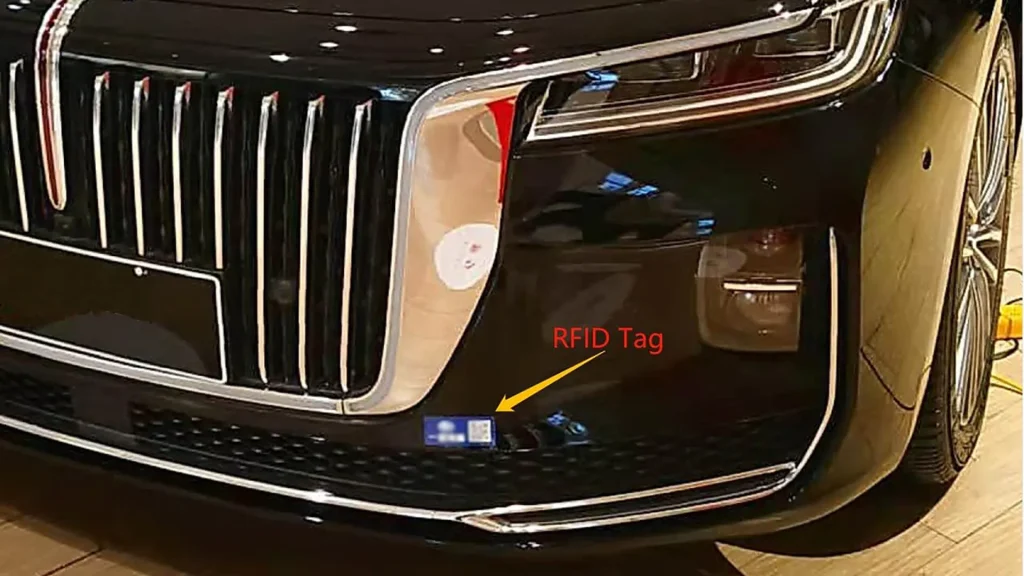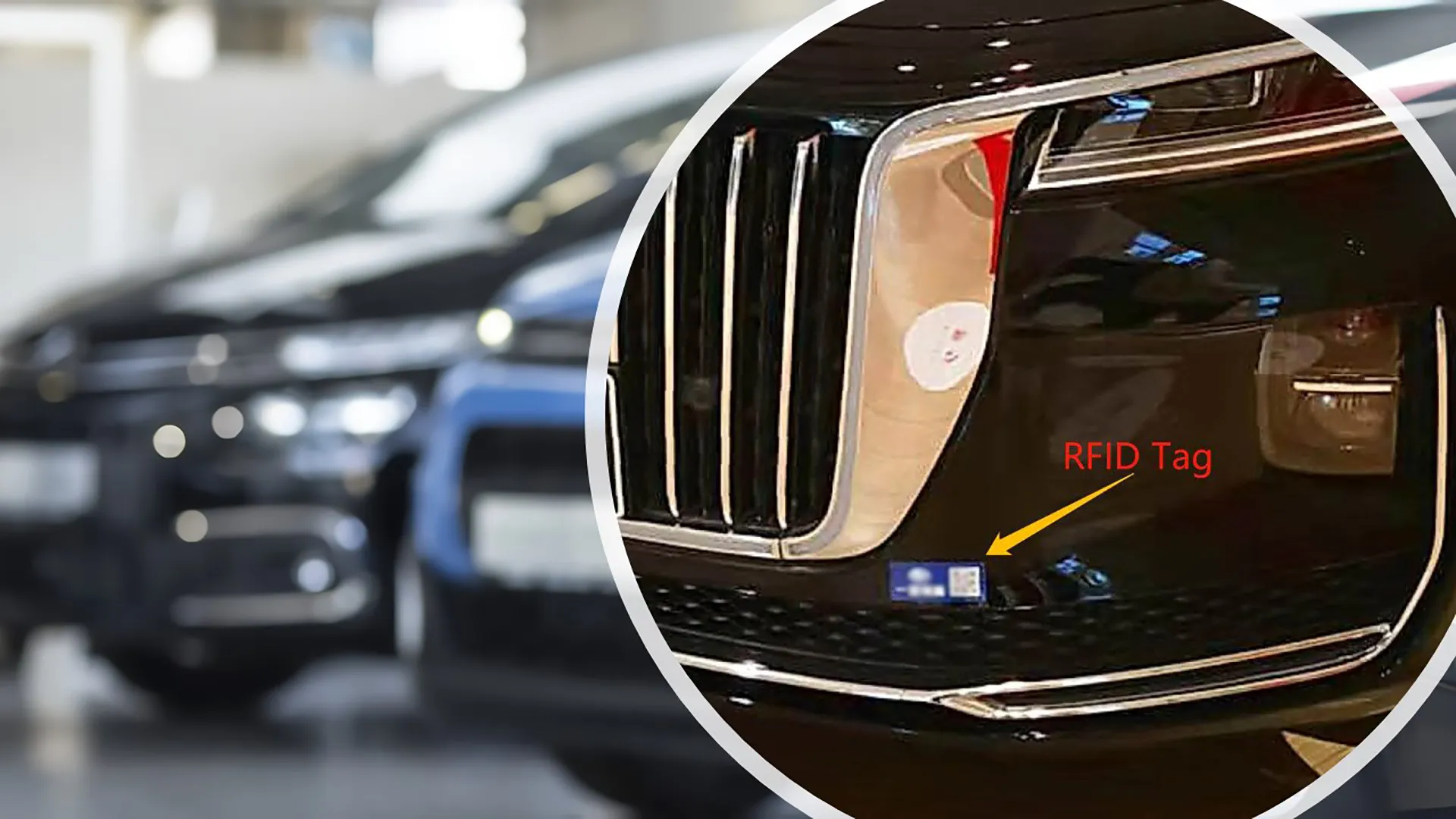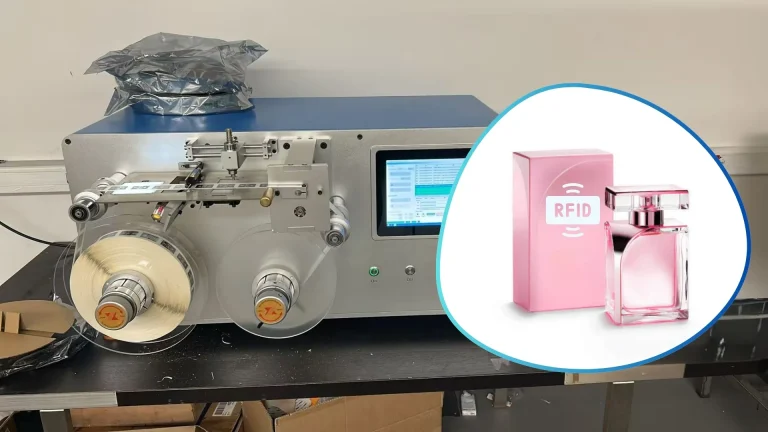UHF RFID Tag for Vehicle Finishing and Shipment
RFID technology is used in many industries and its use continues to grow. One example is in the automotive industry, where companies use RFID in many parts of their production and distribution chains. RFID has a particular value at the automotive manufacturing and dealership levels.
The demand for fast, high-quality, environmentally friendly, and efficient production continues to grow in the automotive industry. RFID technology offers much greater speed than bar codes, as most production steps can be automated. In addition, the introduction of RFID in automotive manufacturing ensures complete visibility of material consumption, finished goods, and their location, and helps manage incoming and outgoing shipments.
Vehicle Tracking at Audi with UHF RFID Tag
The scattered parking spaces and changing infrastructure at Audi’s production sites lead to high costs for finding vehicles. Vehicles were not assigned to production lines. The manual system required driver paperwork and location-specific barcode scanning. This method is labor-intensive and provides limited visibility into the management of the finishing and shipping process.
Audi has now opted for a uniform vehicle tracking concept for the finishing and shipping processes at all production sites. Vehicles produced are registered via RFID in the factory parking lot and the assembled production area.
For identification purposes, each vehicle receives a UHF RFID tag on the inside of the front bumper after assembly. The passive RFID tag is described on the production line using a vehicle identification number (VIN) and another ID number used at the assembly station.
When passed through the RFID reader, the ID number of the corresponding vehicle’s transponder is recorded. The ID is transmitted to the back-end system along with the directional identification data. RFID software installed on each reader interprets the reading events, filters out unnecessary data or incorrect readings, and forwards the relevant information to the IT system. At the same time, the RFID software manages and monitors the status of the RFID hardware at the installed read points.
RFID detection occurs in the factory parking lot and the production areas of the assembly. When parking, the driver also has the option to manually register the vehicle’s transponder and parking space using a handheld reader or to correct the data. At some production sites, GPS coordinates can be recorded to report the exact location of the vehicle to the IT system.

UHF RFID for KIA Vehicle Finishing and Shipment
UK logistics provider Paragon Automotive is using Smartrac’s passive UHF RFID tags to track the receipt, sorting, storage, and shipping of vehicles on its shop floor and in outdoor storage areas.
The growth of the new car market has put pressure on automakers and their logistics providers to move vehicles to retail locations at a faster pace. Manually tracking the location of all these cars is a time-consuming process. In fact, an inventory check of 20,000 vehicles required a team of 20 employees for an entire weekend to determine the location of each vehicle. These new vehicles were not equipped with license plates, making them difficult to identify visually.
In addition, operators needed to be able to locate the vehicles as they went through the reconditioning process, which often meant a lot of work associated with manually entering the locations into the system so that the information could be used to locate the vehicles later. Each vehicle is stored in a space identified by a specific row and parking space. For example, the address could be “Arrivals, row AA, bay 28”. Each time an operator moves a vehicle, he or she manually records the new location and the vehicle’s vehicle identification number (VIN) using a rugged Android-based handheld device.
RFID technology is used to confirm the location data of vehicles in storage – for example, to determine if a particular car is not parked in a designated area, row and interval. Using RFID means that we have a secondary method of locating any unit in case an operator does not record the location correctly. the RFID system confirms this data. In addition, RFID enables shop floor users to identify vehicles via handheld readers without having to enter the last eight digits of their VIN.
After the cars are unloaded from the ship, UHF tags are attached to the inside of each vehicle’s rear driver’s side window and the tag’s coded ID number is associated with the car’s VIN. The combination of RFID readers installed at each site and the IT platform and RFID management system ensures that no errors are made during storage, completion of work, inspection, or shipping, and also saves staff time that would otherwise be spent manually inventorying or searching for specific vehicles in the factory.
Benefits
- Increased visibility into the vehicle management process.
- Time spent locating sought-after vehicles is reduced.
- Available resources and parking spaces are optimally utilized.
- Throughput time is reduced by eliminating the manual scanning process.
- Finishing and transportation workflows are efficiently designed.
- Reduces the time and cost of existing control processes.
HUAYUAN Passive UHF RFID Tag for Vehicle Finishing and Shipment
HUAYUAN has been supplying FAW Group (China’s No. 1 automotive plant, which produces high-end cars) with vehicle tracking RFID tags for 2 years, and in 2021, we supplied FAW with 1.8 million RFID tags. HUAYUAN in the development of this tag is fully considered the car bumper on the RFID frequency interference, the production of high-quality electronic identification. HUAYUAN also provides RFID windshield tags, RFID tags for auto plastic parts & auto seats, and more than ten different tags to three other large domestic auto factories for automated production management, inventory parts management, and vehicle finishing and shipment management.

To learn more about vehicle finishing and shipment RFID tags, please contact the HUAYUAN team for a free consultation. HUAYUAN is a professional RFID tag manufacturer, providing all kinds of passive RFID tags, but not provide RFID systems.






